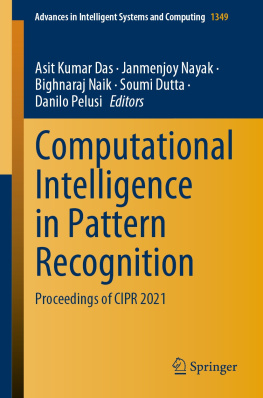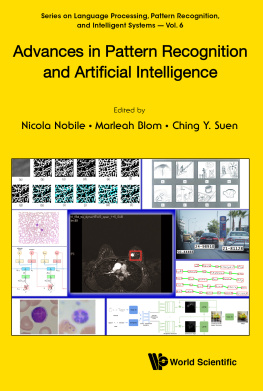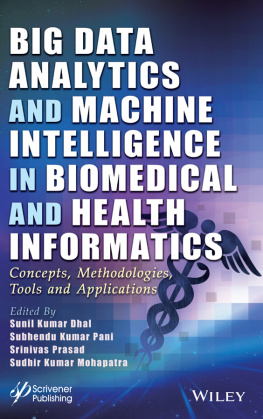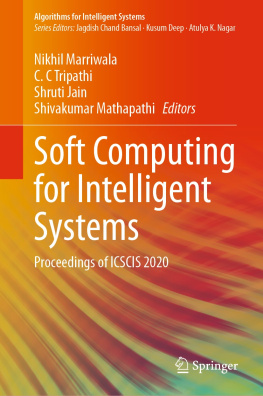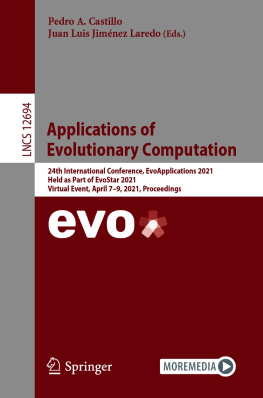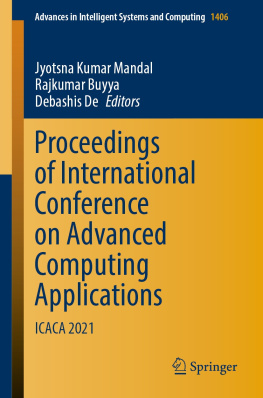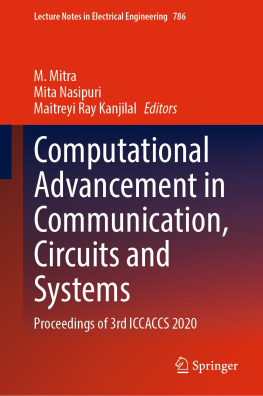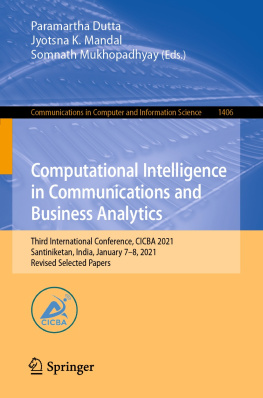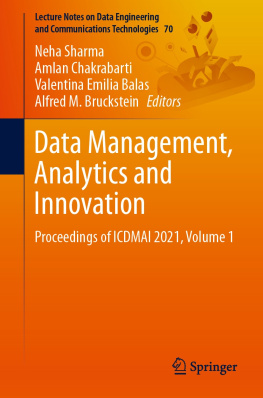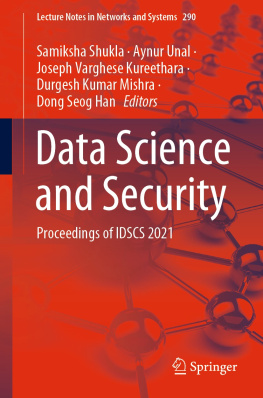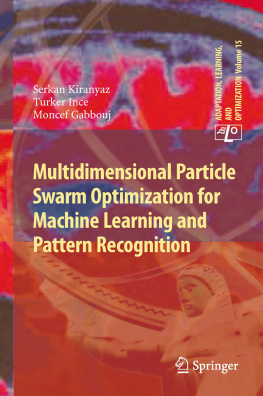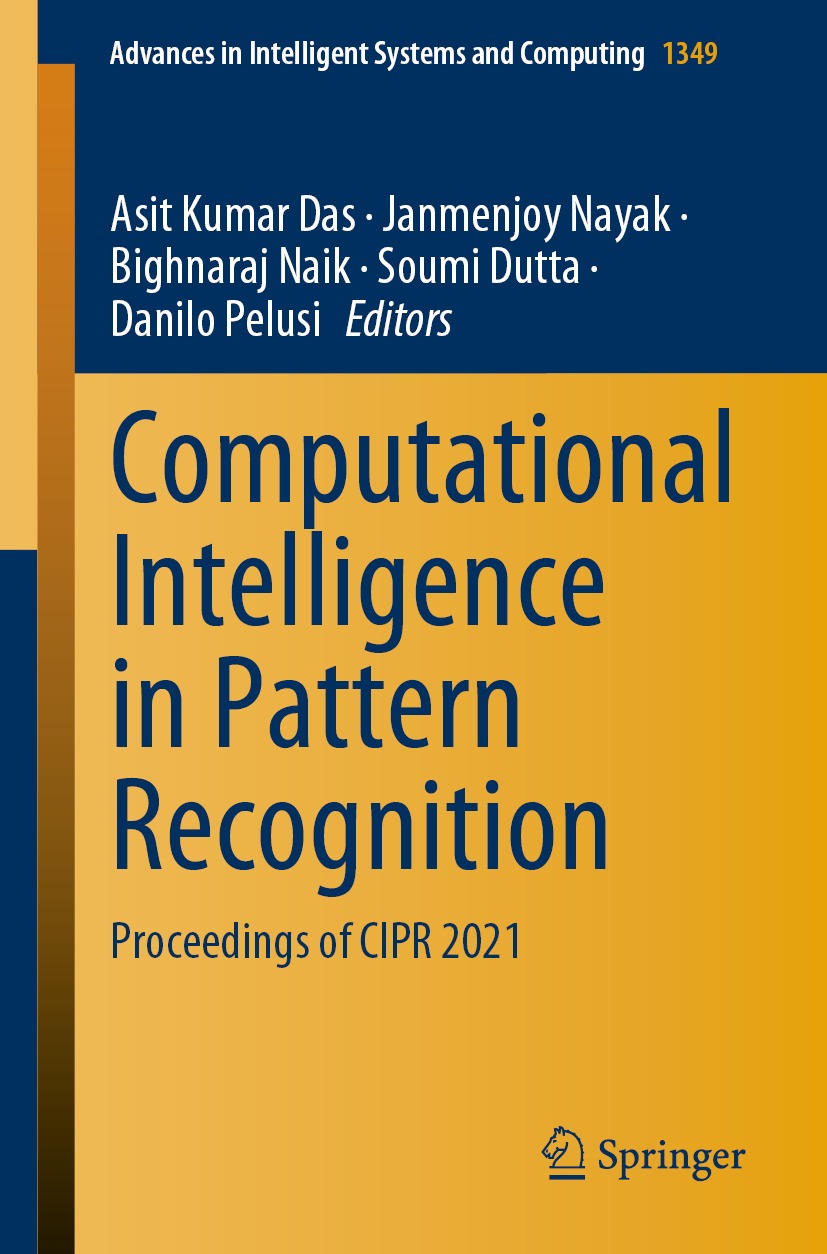Volume 1349
Advances in Intelligent Systems and Computing
Series Editor
Janusz Kacprzyk
Systems Research Institute, Polish Academy of Sciences, Warsaw, Poland
Advisory Editors
Nikhil R. Pal
Indian Statistical Institute, Kolkata, India
Rafael Bello Perez
Faculty of Mathematics, Physics and Computing, Universidad Central de Las Villas, Santa Clara, Cuba
Emilio S. Corchado
University of Salamanca, Salamanca, Spain
Hani Hagras
School of Computer Science and Electronic Engineering, University of Essex, Colchester, UK
Lszl T. Kczy
Department of Automation, Szchenyi Istvn University, Gyor, Hungary
Vladik Kreinovich
Department of Computer Science, University of Texas at El Paso, El Paso, TX, USA
Chin-Teng Lin
Department of Electrical Engineering, National Chiao Tung University, Hsinchu, Taiwan
Jie Lu
Faculty of Engineering and Information Technology, University of Technology Sydney, Sydney, NSW, Australia
Patricia Melin
Graduate Program of Computer Science, Tijuana Institute of Technology, Tijuana, Mexico
Nadia Nedjah
Department of Electronics Engineering, University of Rio de Janeiro, Rio de Janeiro, Brazil
Ngoc Thanh Nguyen
Faculty of Computer Science and Management, Wrocaw University of Technology, Wrocaw, Poland
Jun Wang
Department of Mechanical and Automation Engineering, The Chinese University of Hong Kong, Shatin, Hong Kong
The series Advances in Intelligent Systems and Computing contains publications on theory, applications, and design methods of Intelligent Systems and Intelligent Computing. Virtually all disciplines such as engineering, natural sciences, computer and information science, ICT, economics, business, e-commerce, environment, healthcare, life science are covered. The list of topics spans all the areas of modern intelligent systems and computing such as: computational intelligence, soft computing including neural networks, fuzzy systems, evolutionary computing and the fusion of these paradigms, social intelligence, ambient intelligence, computational neuroscience, artificial life, virtual worlds and society, cognitive science and systems, Perception and Vision, DNA and immune based systems, self-organizing and adaptive systems, e-Learning and teaching, human-centered and human-centric computing, recommender systems, intelligent control, robotics and mechatronics including human-machine teaming, knowledge-based paradigms, learning paradigms, machine ethics, intelligent data analysis, knowledge management, intelligent agents, intelligent decision making and support, intelligent network security, trust management, interactive entertainment, Web intelligence and multimedia.
The publications within Advances in Intelligent Systems and Computing are primarily proceedings of important conferences, symposia and congresses. They cover significant recent developments in the field, both of a foundational and applicable character. An important characteristic feature of the series is the short publication time and world-wide distribution. This permits a rapid and broad dissemination of research results.
Indexed by DBLP, INSPEC, WTI Frankfurt eG, zbMATH, Japanese Science and Technology Agency (JST).
All books published in the series are submitted for consideration in Web of Science.
More information about this series at http://www.springer.com/series/11156
Editors
Asit Kumar Das , Janmenjoy Nayak , Bighnaraj Naik , Soumi Dutta and Danilo Pelusi
Computational Intelligence in Pattern Recognition
Proceedings of CIPR 2021
1st ed. 2022

Logo of the publisher
Editors
Asit Kumar Das
Computer Science and Technology, Indian Institute of Engineering Science, Howrah, West Bengal, India
Janmenjoy Nayak
Computer Science and Engineering, Aditya Institute of Technology and Management, Tekkali, Andhra Pradesh, India
Bighnaraj Naik
Computer Applications, Veer Surendra Sai University of Technology, Burla, Odisha, India
Soumi Dutta
Computer Application and Science, Institute of Engineering and Management, Kolkata, West Bengal, India
Danilo Pelusi
Communication Sciences, University of Teramo, Teramo, Italy
ISSN 2194-5357 e-ISSN 2194-5365
Advances in Intelligent Systems and Computing
ISBN 978-981-16-2542-8 e-ISBN 978-981-16-2543-5
https://doi.org/10.1007/978-981-16-2543-5
The Editor(s) (if applicable) and The Author(s), under exclusive license to Springer Nature Singapore Pte Ltd. 2022
This work is subject to copyright. All rights are solely and exclusively licensed by the Publisher, whether the whole or part of the material is concerned, specifically the rights of translation, reprinting, reuse of illustrations, recitation, broadcasting, reproduction on microfilms or in any other physical way, and transmission or information storage and retrieval, electronic adaptation, computer software, or by similar or dissimilar methodology now known or hereafter developed.
The use of general descriptive names, registered names, trademarks, service marks, etc. in this publication does not imply, even in the absence of a specific statement, that such names are exempt from the relevant protective laws and regulations and therefore free for general use.
The publisher, the authors and the editors are safe to assume that the advice and information in this book are believed to be true and accurate at the date of publication. Neither the publisher nor the authors or the editors give a warranty, expressed or implied, with respect to the material contained herein or for any errors or omissions that may have been made. The publisher remains neutral with regard to jurisdictional claims in published maps and institutional affiliations.
This Springer imprint is published by the registered company Springer Nature Singapore Pte Ltd.
The registered company address is: 152 Beach Road, #21-01/04 Gateway East, Singapore 189721, Singapore
Preface
The twentieth century is witnessing a big data revolution, where most of the real-life engineering domains are facing incredible challenges caused by an irresistible flow of data and need swift interpretation. Moreover, all these data are not in a sorted sequence and need lots of computation. Computational Intelligence methods such as neural networks, fuzzy logic, evolutionary algorithms, etc. are the frequent choice for handling such issues with a special light on the non-linearity nature of data. Moreover, these methods are suitable for developing robust models of processes with the integration of other intelligent methods for effective pattern recognition problems.
The third international conference Computational Intelligence in Pattern Recognition, (CIPR-2021), is organized by the Institute of Engineering and Management (IEM), Kolkata, West Bengal, India, on 24 and 25 April 2021. Because of the current pandemic situation of novel coronavirus across the globe, many countries have initiated lockdown measures for safety against the pandemic. In consideration of the participants request, the conference committee has made a difficult decision to convert the face-to-face meeting of this year to a virtual (online) mode conference. The conference is directed toward the dissemination of knowledge and advances research in various applications of pattern recognition and intelligent computing. In this third version, two new themes such as deep learning and big data are being specifically focused on. Moreover, a separate theme of proposals is invited on applications of computational intelligence in integration to text video recognition, sentiment analysis, advanced image processing and covid data analysis. The articles are subdivided into three tracks such as Intelligent Algorithms for Pattern Recognition, Application of Computational Intelligence and Advance Computing. This series of CIPR contains good quality articles based on the major and minor thematic areas of the conference, which are very specialized in the respective domains. This volume is a wide range of collections of articles on the applications of computational intelligence on Astrological Predictions, Personality Prediction, Real-Time Video Analysis, Identifications of Skin Cancer, Analyzing Crime Documents, Specific Language Recognition, Rice Disease Prediction, Computing GPS Uncertainties, COVID-19 Report Analysis, Cybercrime Attack Analysis, Disease Data Analysis, Audio-Visual Color Recognition, Audio Fingerprinting, Automatic Sign Language Identification, Vessel Network Identification, Corona Patient Detection, Lane Marking Detection, Concrete Crack Detection, Cervical Cancer Detection, Student Lifestyle Query Classification, Crop Management, etc. All the accepted papers are double-blind reviewed by the concerned subject experts and the editors had a great time working in collaboration with international advisory, program and technical committee members.

